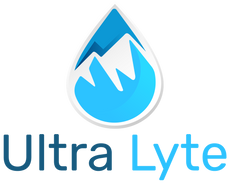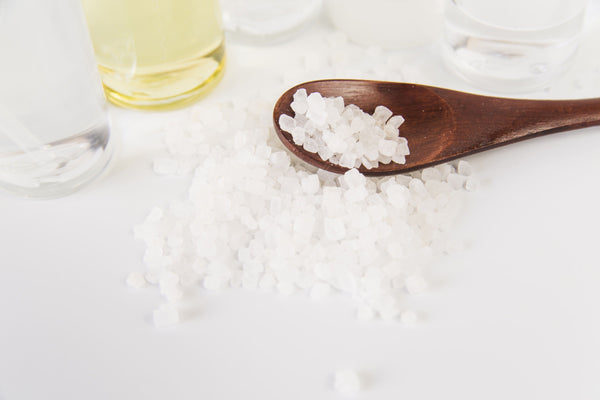
Iodine

Iodine
Iodine is a minor element, but it greatly impacts human health. It is one of the nine minerals the body requires for enzymatic reactions, hormone production, cellular communication, and dozens of other functions. Unlike other nutrients, your body cannot produce iodine on its own. You must consume it through your diet and, if necessary, supplementation.
Read on to learn about the benefits of iodine for your body.
Improves Thyroid Health
Iodine is essential for your thyroid health. The thyroid gland is placed near the base of your neck and aids in regulating and producing thyroid stimulating hormone (THS) and its active metabolites, T3 and T4. These hormones regulate your metabolism, heart health, and other functions. If there isn't enough iodine in the diet, it can lead to hypothyroidism, where the production of these hormones decreases1. This can result in various symptoms, including fatigue, weight gain, and depression. It's important to ensure you get enough iodine in your diet to keep your thyroid healthy.
Reduces the Risk of Goiter
Proper iodine intake can lower your risk of goiters and, in rare cases, reverse them. A goiter is a thyroid gland enlargement. It can occur as a result of either hypothyroidism or hyperthyroidism. Hyperthyroidism is a condition defined by an overactive thyroid gland2.
Helps in Fetal Growth and Development
During pregnancy, the body's iodine requirements increase. The increased demand for iodine in pregnancy is because iodine is required for fetal development, notably the development of the fetal thyroid gland. The fetus depends entirely on the mother's thyroid hormone production during early pregnancy. Iodine deficiency during pregnancy can impair cognitive and neurological development in newborns and children. A study shows that babies whose mothers did not get enough iodine in pregnancy were expected to have lower IQs and other intellectual delays as they got older3.
Supports Immune Function
Iodine is essential for your immune system to function properly. It's like a natural cleanser that destroys microorganisms on its own. They watch for abnormal cell growth when iodine and thyroid hormones work together. It also acts as a barrier against harmful bacteria in your stomach, especially the ones that cause various stomach problems. Iodine can even conceal and stop dangerous substances, such as pathogens or pollutants from entering your body4.
Improves Cognitive Function
Iodine has a vital role in improving brain function. A shortage of iodine appears to influence numerous parts of the brain, including the hippocampus, neurotransmitters, the protective myelin that coats your nerves, and the cognitive process itself. This can result in lower IQ in children or memory loss in adults5.
Improves Female Health
Iodine is crucial for maintaining optimal female health. Insufficient iodine in women can result in problems such as fibroids. These non-cancerous tumors can be found in the breast. These masses may come and go in monthly cycles or gradually enlarge over time6.
Food Sources of Iodine
Iodine is present in seaweed, eggs, milk, yogurt, cod, and enriched bread.
The recommended daily intake of iodine according to different age groups is given below7:
- Birth to 6 months: 110 mcg
- 7–12 months: 130 mcg
- 1–3 years: 90 mcg
- 4–8 years: 90 mcg
- 9–13 years: 120 mcg
- 14–18 years: 150 mcg (220 mcg during pregnancy, 290 mcg while breastfeeding)
- 19+ years: 150 mcg (220 mcg during pregnancy, 290 mcg while breastfeeding)
Iodine's small concentration has enormous health benefits. It is necessary for thyroid health and fetal development since it is crucial for hormones, immunity, cognition, and other functions. Adequate intake is necessary, particularly during pregnancy. You can maximize its positive effects on health by prioritizing iodine-rich foods and recommended amounts.






